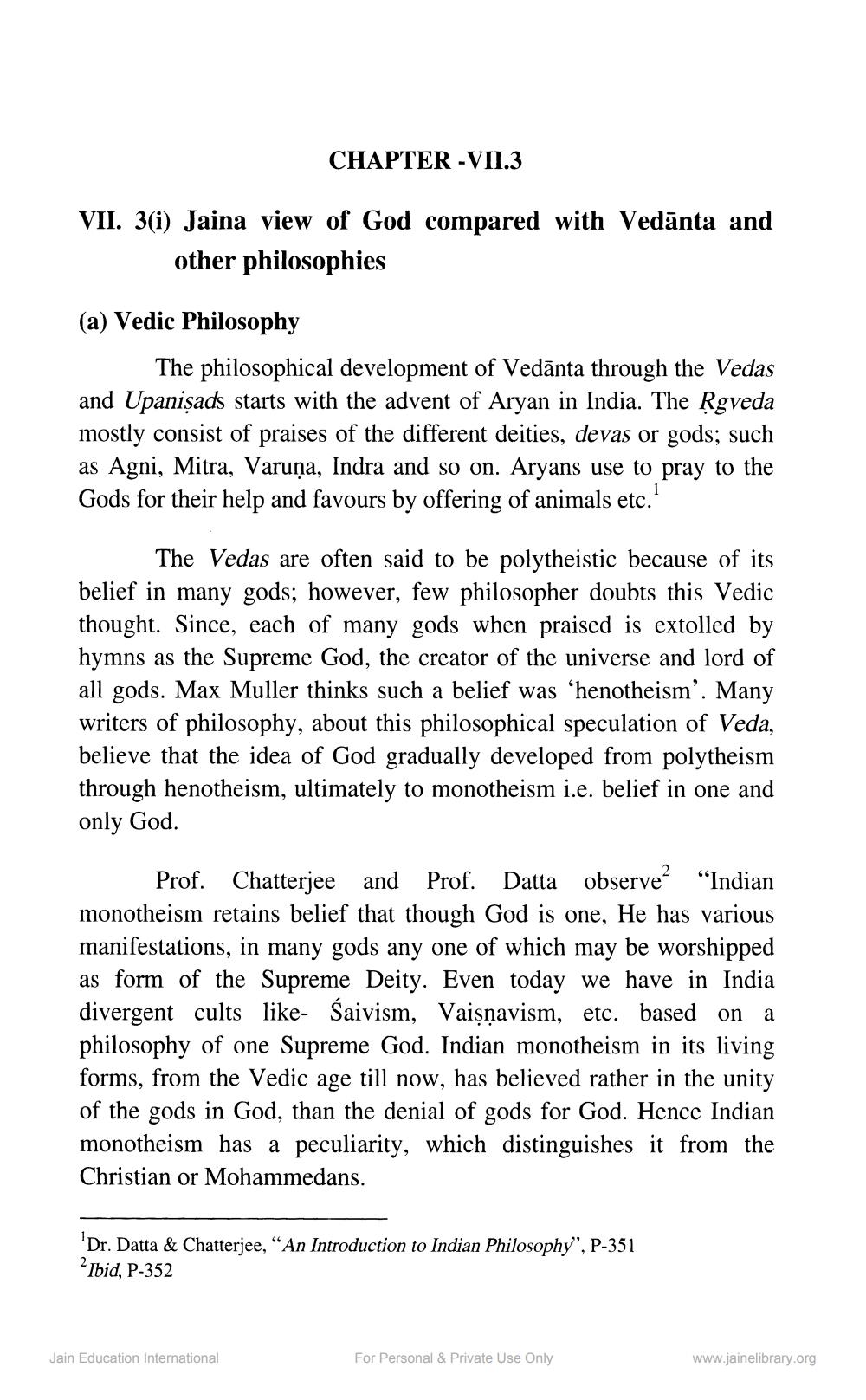________________
CHAPTER -VII.3
VII. 3(i) Jaina view of God compared with Vedānta and
other philosophies
(a) Vedic Philosophy
The philosophical development of Vedānta through the Vedas and Upanişads starts with the advent of Aryan in India. The Rgveda mostly consist of praises of the different deities, devas or gods, such as Agni, Mitra, Varuņa, Indra and so on. Aryans use to pray to the Gods for their help and favours by offering of animals etc.
The Vedas are often said to be polytheistic because of its belief in many gods; however, few philosopher doubts this Vedic thought. Since, each of many gods when praised is extolled by hymns as the Supreme God, the creator of the universe and lord of all gods. Max Muller thinks such a belief was ‘henotheism'. Many writers of philosophy, about this philosophical speculation of Veda, believe that the idea of God gradually developed from polytheism through henotheism, ultimately to monotheism i.e. belief in one and only God.
Prof. Chatterjee and Prof. Datta observe "Indian monotheism retains belief that though God is one, He has various manifestations, in many gods any one of which may be worshipped as form of the Supreme Deity. Even today we have in India divergent cults like- Saivism, Vaişnavism, etc. based on a philosophy of one Supreme God. Indian monotheism in its living forms, from the Vedic age till now, has believed rather in the unity of the gods in God, than the denial of gods for God. Hence Indian monotheism has a peculiarity, which distinguishes it from the Christian or Mohammedans.
Dr. Datta & Chatterjee, “An Introduction to Indian Philosophy”, P-351 ?Ibid, P-352
Jain Education International
For Personal & Private Use Only
www.jainelibrary.org




